|
Farhan Amran is a final-year student of the Faculty of Law, University of Malaya (UM). Everywhere he goes, he is known simply as Farhan — a prominent frontliner of student activism spotlighted for his zealous quest to protect student rights both within and beyond the Faculty. Farhan’s limitless passion is reflected by his involvement in projects, which some caught the attention of various parties, organisations and even the government. His adventurous journey throughout activism is full of twists and turns. However, what lies beneath his exterior is simply a person who places prominence on equality within society. Farhan was born and raised in a small village in Perak. His father worked as a technical engineer while his mother was a school principal. Growing up in a working-class family, he learned that there are no shortcuts to achieving success. This realisation influenced his actions as he was gradually exposed to the realities of life. During high school, Farhan indulged in the realm of English debate for three years. The intellectual discourse trained him to think critically about matters that affect the people around him. It eventually unearthed his interest in the law as he became cognisant of the role the law plays as a practical tool in regulating society. At the impressionable age of 16, Farhan was smitten with the idea of fighting for student rights. Although he was only a schoolboy, he observed and participated in a student demonstration held at Sultan Idris Education University (UPSI). As much as it was risky, Farhan believed that student autonomy was a worthy cause, and he braced himself to tread on this path for years to come. Thus, he enrolled in UM Law School to familiarise himself with the mechanics of the law and learn how to improve the system from within. Farhan’s humble upbringing strengthened his mental fortitude and primed him for the perilous journey that lies ahead. The fiery passion he cultivated during high school burned brighter as he delved into the inner workings of UM student politics. Currently, he is the Co-ordinator of Demokrat UM — an independent non-partisan student front aimed to empower students and uphold student autonomy. Farhan was scouted into the organisation in 2018 by the former Co-ordinator and Faculty representative of the Student Union, Ms Iman Najaa. He pinpoints her as the person who contributed to his growth as a student leader. Armed with her guidance and support, Farhan was able to appreciate and uphold the core value of Demokrat UM, which is unity as a student front in their campaign for student autonomy, regardless of differences in political beliefs. ‘We involve ourselves with many people with different ideologies, including conservatives, liberals, centrists, socialists and even atheists. We respect each and everyone’s opinions, but when it comes to student rights and campus democracy, we are united.’ During his tenure, Farhan had the opportunity to champion student liberty in multiple initiatives. A memorable accomplishment of his team was the successful reformation of the student election process in 2019. To achieve their goal, they worked together with other components of the reform to curate the new policy. Their hard work bore fruit as the UM Campus Election Committee was subsequently established as UM’s first election committee solely comprised of students. The victory validated their tireless efforts lobbying for the voices of the students to be heard. ‘We are on the students’ side, and everything we do is for them. After all, that is the core of student autonomy. We shield the students, empower the students, ensure that the students’ rights are on the right track and that they are given the authority, and have a say in this university.’ Farhan with fellow members of Demokrat UM Aside from that, Farhan was also involved in Faculty activities that advocate central issues. Most notably, he served as the Vice Director of UM Lex ACT 2019/2020 in his third year. Farhan envisaged Lex ACT to be the Faculty’s introductory club to activism. His primary mission was to promote dialogue on pressing social and legal issues. For example, the underrated topic of food literacy was brought to light when news portals reported on financially-constrained UM students who were forced to live on merely one meal per day. As a student activist, Farhan felt responsible for addressing this issue immediately. While the Student Union’s food bank was an amenable alternative, he desired more solutions to aid the unfortunate. Farhan pressed for educating the students and the public about food literacy as the first step towards solving the problem. Thus, in his capacity as the then Co-coordinator of Demokrat UM and the Vice Director of Lex ACT, Farhan personally led the Mahasiswa Juga Mahu Makan programme. This initiative encompasses a film screening and forum in collaboration with the Malaysian Centre for Constitutionalism and Human Rights (MCCHR) and Freedom Film Festival. The event provided the perfect avenue for an open discussion on food literacy awareness in the campus. Farhan and the participants of Mahasiswa Juga Mahu Makan Going beyond his efforts with Lex ACT, Farhan addressed this critical issue on a systemic level. After employing the cooperation of the Residential College Caretaker Action Committees (JTK) to survey food costs in college cafeterias, a proposal was drafted to urge the implementation of a new policy for stricter regulation and more reasonable pricing rates. Consequently, he managed to curve down food prices to an average rate and imposed a price ceiling on all the food in college eateries. Farhan prided himself on a job well done as he was able to improve one vital aspect of the students’ daily lives. Furthermore, Farhan strived to capture the focus of law students with activism-based activities in the Faculty through Lex ACT. He hoped that by showcasing nuanced issues such as food literacy, the members of the Faculty would be persuaded to buttress activism efforts. Unfortunately, much of the club’s plans for the rest of the semester were halted due to the COVID-19 outbreak. Farhan personally opined that law students should be the first to empathise with subtle issues hidden from public attention. This is because law students have the knowledge, skills and capability to comprehend legal ramifications in situations that others struggle to grasp. Therefore, they should utilise those abilities and channel their energy towards making a positive change. At the very least, they should be well-informed of the students’ concerns. ‘Law students are considered critical-thinkers here in the Faculty, in this realm of excellence. We know our rights as we learn them in our lectures; we know what we can bring to the table. The reality is that the students are in need, but many do not have the courage to voice their concerns. So, we should be there in their stead to assist them.’ Farhan campaigning as the Ketua Gerakan (Leader of the Component Parties) for Suara Siswa in the UM campus election Farhan is a firm believer that actions speak louder than words; he believes that one should not be complacent with mere theoretical discussions. Instead, execution is the key to ensuring that advancements are being made for the betterment of society. His philosophy is exemplified through the work he does beyond the confines of the Faculty and university. In the midst of delivering important issues to the students, he also partakes in advocating grassroots programmes deserving of the public’s attention. Among them is his substantial involvement as a co-founder of Pulang Mengundi Sabah (Return to Vote Sabah), which received viral attention on various social media outlets via the #PulangMengundiSabah sobriquet. The student-led movement aspires to assist Sabahan students in returning to their respective hometowns for the 2020 Sabah State Election. When word on the state election spread, Farhan felt for the Sabahans in West Malaysia who longed to vote but lack the financial capacity to bear costly aeroplane fees — especially those belonging in the B40 category. Hence, he banded together with several other student leaders to lend a helping hand. It was not an easy decision; the team contemplated many aspects before pushing through the initiative. The burden of collecting sufficient funds weighed on their minds, and exposure to the deadly coronavirus was a risk to be considered as well. After much deliberation, they bravely resolved to continue the campaign. ‘We want to send a message to the higher-ups that we are aware of the current political climate in this country. Since the state government agreed to proceed with the election, we cannot curb the voters’ right to vote. If they want to vote, we should be there to assist them. Regardless of the pandemic, they have the right to determine the future of their states.’ Farhan with the co-founders of Pulang Mengundi Sabah Upon their conviction, Farhan and his colleagues launched crowdfunds and endorsed voluntary contributions. They were not too ambitious initially as the funding stream was relatively slow, but they were not disheartened. The team exhausted every connection available to ensure the success of the initiative, such as contacting potential contributors and non-governmental organisations (NGOs) who were willing to give aid. The situation improved immensely when media outlets started covering the movement and spread their positive message — reaching the ears of many citizens. Each day, more people solidified their stance in support of the mission. The number of students applying for the subsidy shot through the roof, and donations were contributed more frequently than ever. Consequently, the team’s workload upscaled as they had to sift through 6,000 applications to vet for qualified applicants. ‘The best thing about the movement is that the majority of the contributions came from the citizens, not the wealthy. Even the people who are unemployed or retired because of COVID-19 donated to us because they felt the need for Sabahans to go home and vote. That was one of the things that touched our hearts.’ Farhan at the airport sending off a Sabahan under Pulang Mengundi Sabah Farhan was astounded by the immense contributions. To honour those who placed their trust in the initiative, he made sure to utilise every cent of the contributions purposively. The long and arduous process no doubt drained Farhan and the other student leaders. Despite this, he was satisfied with the time and energy spent for the sake of the students. The enriching experience made his journey as a student activist more meaningful. However, this was not the end for Pulang Mengundi Sabah. As the 2020 Sabah State Election concludes, the Ministry of Higher Education issued a recommendation to public universities to postpone student intakes and registration sessions. Unfortunately, many students had already expended means for transportation and accommodation fees; some were even left stranded after being refused entry by certain university administrations. Seeing the predicament of students unfold, Farhan generously offered on his social media to house a few students in his apartment since it was available at the time. His personal message unexpectedly incited a movement under the #JomBantuSiswa hashtag as more followed suit by offering help in their own capacity. The sudden development was astonishing, but Farhan took to strike the iron while it was hot. He quickly engaged the Pulang Mengundi Sabah team in the new initiative and utilised their established platform with amassed traction to help the students in this matter. Although initially unplanned, the movement also became successful as they managed to send many unfortunate students back home by sponsoring bus tickets, pocket money and accommodation. Safe to say, Pulang Mengundi Sabah has cemented its status as the centre for students to air their grievances and find amicable solutions to their problems. Moving forward, Farhan said that there is no surety as to where Pulang Mengundi Sabah will stand from now on. The only certain thing is that they will continue to evolve to oblige the needs of young people. ‘There is a rumour that the Sarawak State Election is going to happen. Right now, everyone is looking at us. I have no promises though. We’ll take one thing at a time.’ Furthermore, Farhan regularly articulates the issues that plague the youth today. He is recognised as the spokesperson of Demokrat UM and the emergent youth movement. Recently, Farhan had the privilege to appear on Astro AWANI’s ‘Consider This’ segment to talk about the realities of digital and economic inequality amongst students. He also spoke on the #OurTurn (#MasaKita) movement that spurred as the aftermath of the turbulent Parliament sitting in July 2020. The healthy discussion brought forth an understanding of the new wave in the current political field. Farhan together with Ms Melisa Idris and Mr Sharaad Kuttan on the set of Astro AWANI: Consider This In addition, Farhan revealed his role in the establishment of the Malaysian United Democratic Alliance (MUDA). The fresh concept of a youth political party intent on reforming the socio-dynamics of the political spectrum appealed to many, but Farhan was cautious. If MUDA was serious in their promise to uphold the youth as more than just tokenism, it must follow through in action. Together with Mr Haziq Azfar, the current UM Student Union President, they critically discussed MUDA’s ideas and representation as a platform for youth-led politics. These inputs were conveyed in the form of policies and structures to the party prior to its official establishment. ‘Representation only means something when we have equal bargaining power. This means we should be able to speak, contribute and have enough seats to make a difference. We have the vision to bring in our policy and agenda that will largely affect our country. It’s the work of reclaiming our space, the space that is rightfully ours to begin with as the future leaders of this country.’ Farhan urges the government to respect the youth in the same manner as everyone else in the political spectrum. He wants to ensure that they would not be taken advantage of as they were in the past. Undoubtedly, such matters are of great significance because it affects the future stability of our entire nation. Farhan and the youths of #MasaKita discussing the policies and structure in the establishment of MUDA While his activities beyond the university are truly remarkable, Farhan does not forget his roots. He is just as concerned about the happenings in the Law Faculty as he is about the country’s political climate. A particular issue plaguing his mind is the Faculty’s low turnout voting during the campus election. The irony that UM law students are not keen to vote in student elections is disappointing to Farhan. He did speculate the reasons behind it and concluded that some students choose not to get involved in the mess of campus politics, while others have suspended beliefs on the efficacy of the Student Union. The rest perhaps do not vote because they have little awareness. Regardless, Farhan is adamant that they should exercise their voting rights as all law students should know that voting is not an easily afforded privilege. ‘People may not care about it now, but they will at some point when the problem comes to them. Fighting amongst ourselves in group chats will lead to nothing if the problem is rooted within the system’s structure. That is what the Student Union is for — to act as the equivalent to the university and deliver your concerns. Every vote counts.’ Farhan believes that the Student Union is the bridge to relegate these problems to the management. The students should have more faith in them. Farhan himself was offered to run in the campus election but opted not to do so out of his own volition. He explains that he feels more at ease working on grassroots causes, where he is allowed to bypass bureaucracy in favour of inspiring others in his own fashion. ‘My direction towards student activism is more organic rather than organisational,’ says Farhan. Still, he is not entirely detached from the system. He serves the Student Union as a Co-ordinator, acting as part of an advisory council to guide the union’s narratives and keep them on the right track. ‘One of the things to ponder is that we must empower others. I think that is a crucial message to get across. I could always contest, but I have reached a limit where I already empowered myself. Now, I can empower others.’ That being said, empowering others is no easy feat. He gradually learned that not everyone comprehends the issues others advocate for immediately. Certain affairs require the stripping down of complexities into the simplest version to be better understood. It is through conversing with Faculty members from various backgrounds that Farhan broadened his horizon. He gained various perspectives that nurtured his intellectual growth and moulded his mindset. Occasionally, Farhan trains with his peers in UM Law FC. The evening exercises function as a momentary break from his otherwise chaotic schedule. Spending precious time with the members of the Faculty in leisure settings are his reminders of the realities of student life. The Faculty is also where he discovered togetherness — evident in the encouragement he received from the members for his recent campaigns in the past year. The boost in morale assures him that he would continue to forward his cause with generous support from his peers. ‘The support given by everyone to what I’m doing is very generous. That really lifted up what I’m doing right now, even though I’m not actively involved in the Faculty. People are vouching for what I’m doing, and that really gave me a huge boost.’ Farhan training weekly with the members of the UM Law FC In return, Farhan wishes to bolster the confidence of young people in the present and future. After spending years assuming the mantle of a fierce protector for student rights, Farhan hopes to gradually dissociate from the movement to engage more at the national spectrum. His enjoyable experience working with seasoned lawyers during his internship at the Attorney General’s Chambers (AGC) assisted him in ascertaining his future role in society. It further supplemented his aspiration to devote more time in the area of policies. In his career path, he yearns to participate in public interest litigation and constitutional human rights. In fact, Farhan divulged that he is already collaborating with certain NGOs on policy changes and amendments on certain areas of our legislation. This includes custodial deaths, decriminalisation of suicide and rebranding the Independent Police Complaints and Misconduct Commission (IPCMC). Ultimately, Farhan’s final goal is not only to give back to society but also to his hometown community. ‘I came from a small and humble village. There are people in need back in my hometown. Whatever resources I have, the things I’m doing in Kuala Lumpur, I’ll bring it back with me and ensure that it will benefit them. The end goal of my life is to ensure and provide entitlement to society and my country.’ Farhan wants to be involved in policy-making in the future; this is Farhan during his internship at the Attorney General’s Office Farhan’s ambition to eventually dive into policy-making at the national level would not be possible without his parents’ support. Farhan’s mother particularly stood out as his role model since he was a young boy. Being a school principal, leadership was essentially her forte. Farhan feels fortunate to have such a well-equipped parent who imparts skills such as leadership, crisis management and negotiation. His relentless pursuit of student rights employed these skills to the maximum. ‘If it weren’t for her blessings, I think I wouldn’t make it this far. I wouldn’t have obtained this traction without her. How she understands me, and pushed me to do these kinds of things — I am blessed. Everything just comes down to the right path.’ Farhan with his mother at the Palace of Justice, Putrajaya He is eternally grateful for the support of his parents, particularly his mother. When the going gets tough, they are the people who will give him the courage to endure the difficulties. Whenever Farhan struggles against time, he juggles his priorities accordingly. For him, it is vital to optimise the opportunities he has to build character and showcase what he can offer. On the other hand, he advises all not to feel overwhelmed by the workload. It is imperative to always remind oneself that studying is still the main responsibility of a student. ‘As much as I advocate for people to do what they love, it’s important to understand that we are here to get that scroll. How you get there is the difference. Do many things and maximise your efficiency. It’s tiring, it’s mind-boggling, but it’s worth it.’ Farhan’s rollercoaster experience enhanced his law school journey. He fervently believes that the core of activism is having the heart to uphold human rights. Farhan is devoted to this stance, unwavering even in the face of adversity. Lastly, Farhan has some advice for the students who are inspired to join the quest but are otherwise afraid to take the first step. He assures that everyone starts at zero. Farhan’s ideal activism begins with knowing one’s core value — be it student autonomy, climate change, women’s rights or even information literacy. The sky is the limit to advocate one’s beliefs. Then, understand and transform the beliefs into tangible schemes. Do not be afraid of criticism; instead, take it in stride, absorb the lesson and seek the necessary improvements to develop one’s character. ‘Take the risk, don’t be afraid to bring change. Make your degree life colourful because at the end of the day, that will bring you to a place where you never believed you could be.’ Written by Azra Athirah.
Edited by Luc Choong Guong Sang and Celin Khoo Roong Teng.
3 Comments
Anon
8/11/2020 02:19:28 am
Very inspiring Farhan! Keep up the good work!
Reply
16/3/2022 07:23:15 pm
That is quite amazing update on your blog about the students who are doing great and achieve their life goals. I’m sure the information here would be pretty provoking for the other students and they are happy to have the stuff. Thumbs up with your work here must visit to explore more.
Reply
30/3/2022 11:53:06 pm
It is rather very good, nevertheless glance at the data with this handle. <a href="https://dailynewsup.com/2021/12/04/mercy-smart-square-features/">mercy smart square</a>
Reply
Leave a Reply. |
Archives
July 2023
Categories
|
|
|
PhoneTel : +603-7967 6511/6512
Fax : +603-7957 3239 |

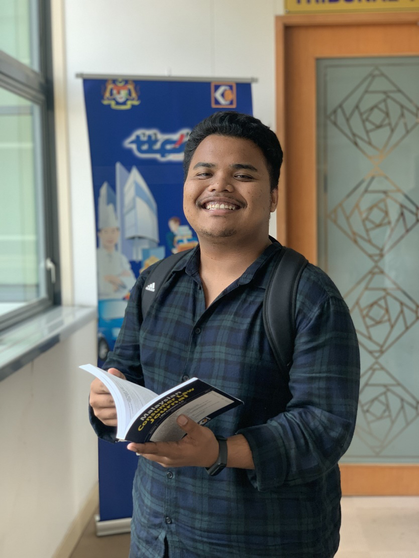
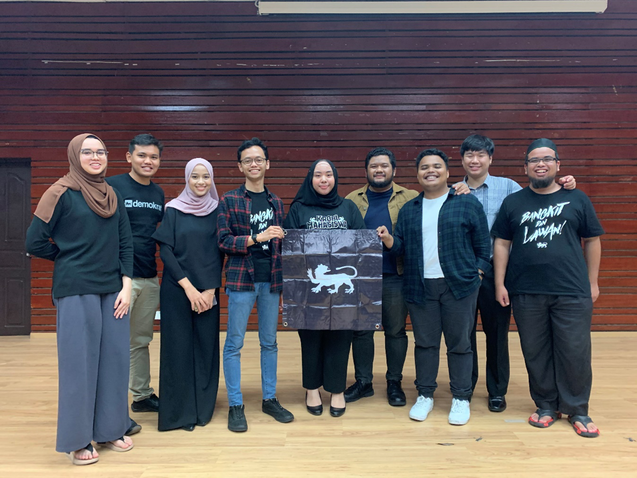
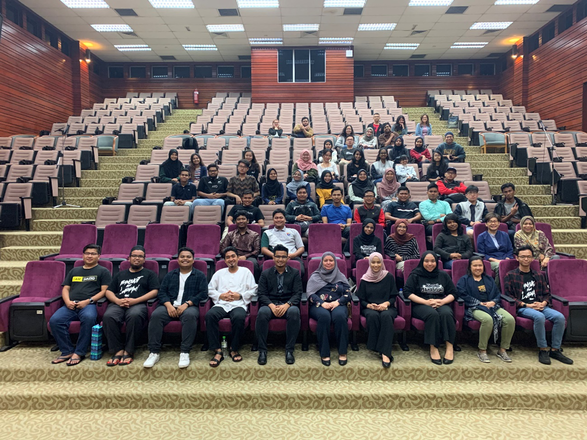
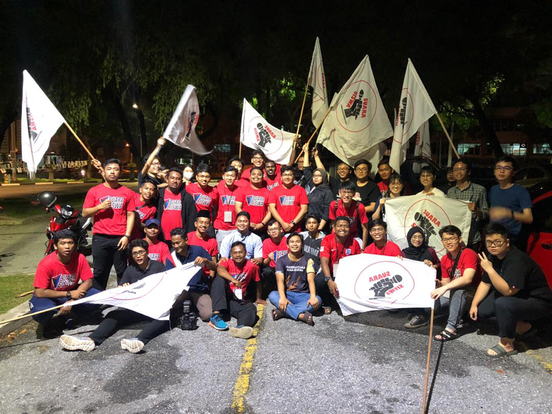
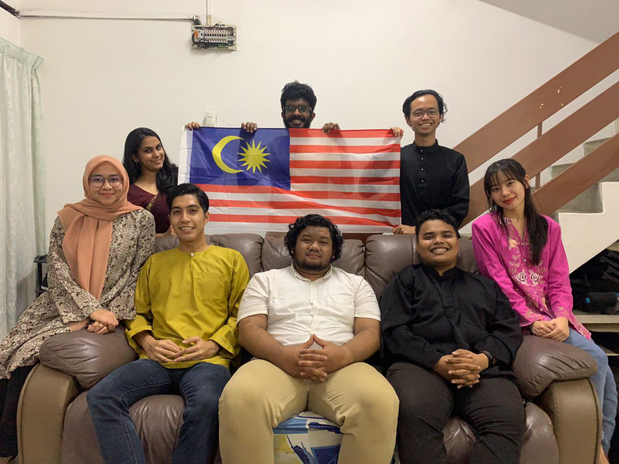
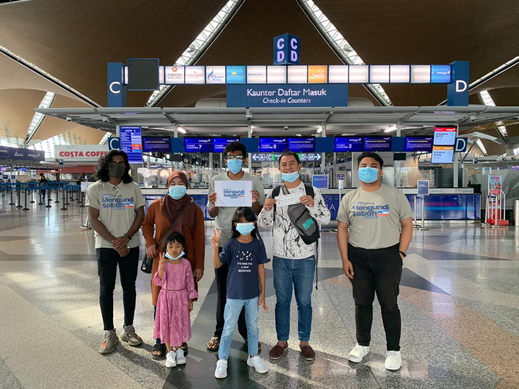

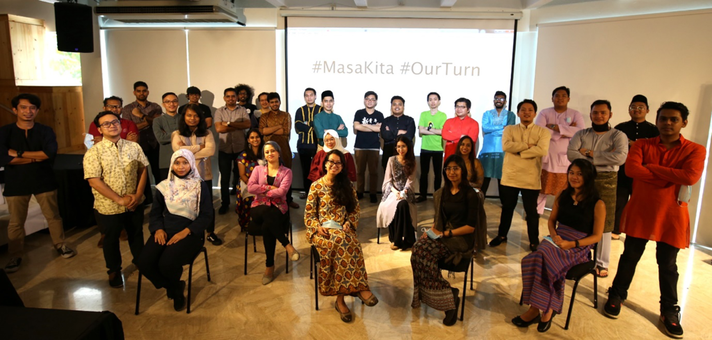
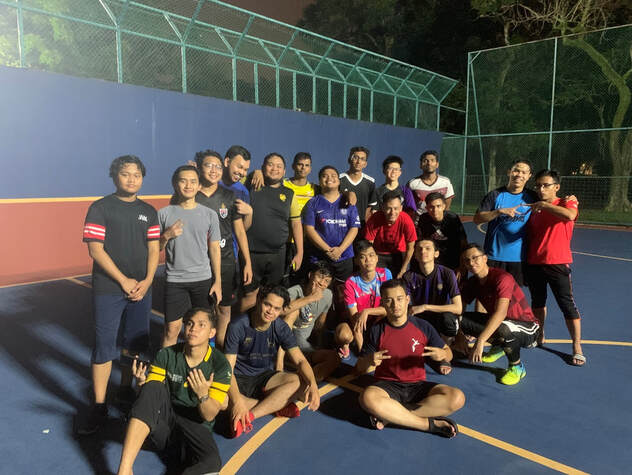
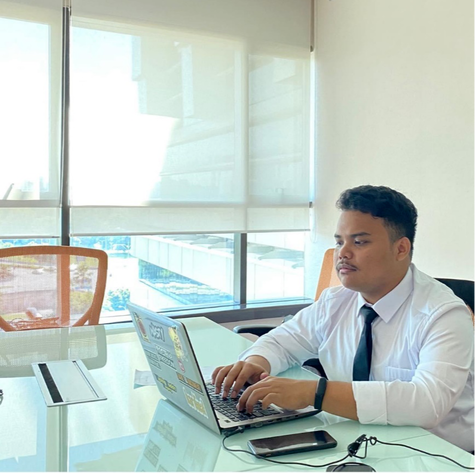
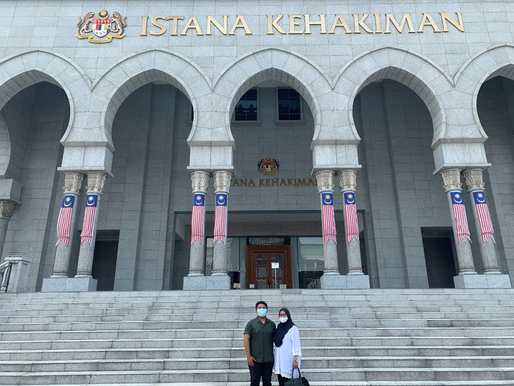
 RSS Feed
RSS Feed